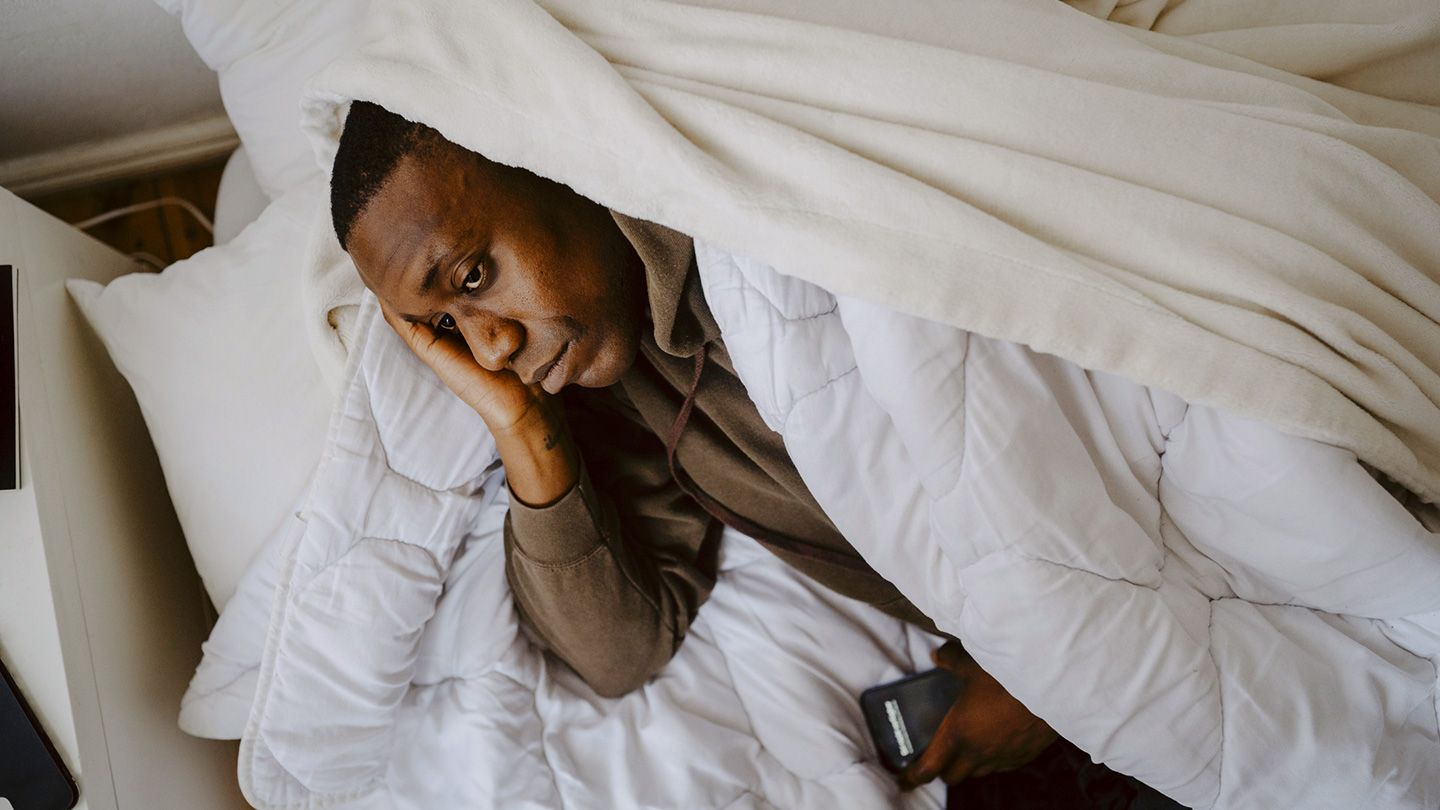

Insomnia is a common sleep disorder that can make it hard to fall asleep, stay asleep, or get enough sleep. It can cause fatigue, irritability, and difficulty concentrating during the day.
The best strategy for combating insomnia is a combination of lifestyle changes and innovative solutions.
Lifestyle Changes
- Establishing a regular sleep schedule and sticking to it as much as possible, even on weekends. This helps to regulate your body’s natural sleep-wake cycle.
- Creating a relaxing bedtime routine. This could include taking a warm bath, reading a book, or listening to calming music.
- Making sure your bedroom is dark, quiet, and cool. Darkness helps to promote the production of melatonin, a hormone that helps to regulate sleep.
- Avoiding caffeine and alcohol before bed. Caffeine and alcohol can interfere with sleep.
- Getting regular exercise, but avoiding strenuous exercise too close to bedtime. Exercise can help to improve sleep quality, but it’s important to give your body enough time to cool down before bed.
- Seeing a doctor if you have any underlying medical conditions that may be contributing to your insomnia.
Innovative Solutions
- Cognitive behavioral therapy (CBT) for insomnia: CBT is a type of therapy that can help you to identify and change negative thoughts and behaviors that are contributing to your insomnia.
- Light therapy: Light therapy involves exposure to bright light during the day and dim light in the evening. This can help to regulate your body’s natural sleep-wake cycle.
- Melatonin supplements: Melatonin is a hormone that helps to regulate sleep. Melatonin supplements can be helpful for people who have difficulty falling asleep or staying asleep.
- Prescription medications: There are a number of prescription medications that can be used to treat insomnia. These medications should only be used under the supervision of a doctor.
New Approaches to Management of Insomnia
- Neurostimulation: Neurostimulation involves using electrical currents to stimulate the brain. Neurostimulation has been shown to be effective in treating some cases of insomnia.
- Genetic testing: Genetic testing can be used to identify genetic variants that may be contributing to insomnia. This information can be used to develop personalized treatment plans.
- Mobile apps: There are a number of mobile apps that have been designed to help people with insomnia. These apps can provide a variety of features, such as sleep tracking, relaxation techniques, and CBT for insomnia.
If you are struggling with insomnia, it is important to talk to your doctor. They can help you to determine the best course of treatment for your individual needs.














Leave a Reply
Be the First to Comment!
You must be logged in to post a comment.
You must be logged in to post a comment.